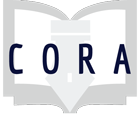Assignment
UNIV 110 - Scholarly Inquiry and Research Methods
Syllabus and five assignments within a two-credit live course at undergraduate level. See "Relevant Links" section for access to all assignments. Assignments include a rubric.
The student will: 1. Gain an understanding of the characteristics of information and its dissemination in the information age. 2. Develop an appreciation for topic analysis and research focused around a question or hypothesis. 3. Learn to strategize research procedures using a wide variety of tools and information sources, based on an understanding of information systems and their manner of operation. 4. Acquire a deeper ability to use critical thinking to interact with diverse concepts, evaluate truth claims, synthesize data and make conclusions. 5. Show an appreciation for the ethical requirements of research and writing.
Information Literacy concepts:
- Defines Information Need (ACRL 1, SCONUL 1&2, ANZIL 1)
- Finds Information (ACRL 2, SCONUL 3&4, ANZIL 2&4, ANCIL 5)
- Evaluates (ACRL 3, SCONUL 5, ANZIL 3, ANCIL 4)
- Ethics (ACRL 5, SCONUL 6, ANZIL 6, ANCIL 7)
- Authority is Constructed / Contextual (Frame 1)
- Information Creation as Process (Frame 2)
- Information Has Value (Frame 3)
- Research as Inquiry (Frame 4)
- Scholarship as Conversation (Frame 5)
- Searching as Strategic Exploration (Frame 6)
Individual or Group:
Ability Level:
The course was taught over five evenings. The course material worked through the research process from topic identification to preparation for final writing. Course assignments provided opportunity for students to integrate instructional content with practice built around topics of their choice.
Textbook: William Badke, Research Strategies: Finding Your Way through the Information Fog, 6th ed. (Bloomington, IN: iUniverse.com, 2017). Links to further resources: http://libguides.twu.ca/UNIV110/Presentations Rubrics provided in each assignment.

